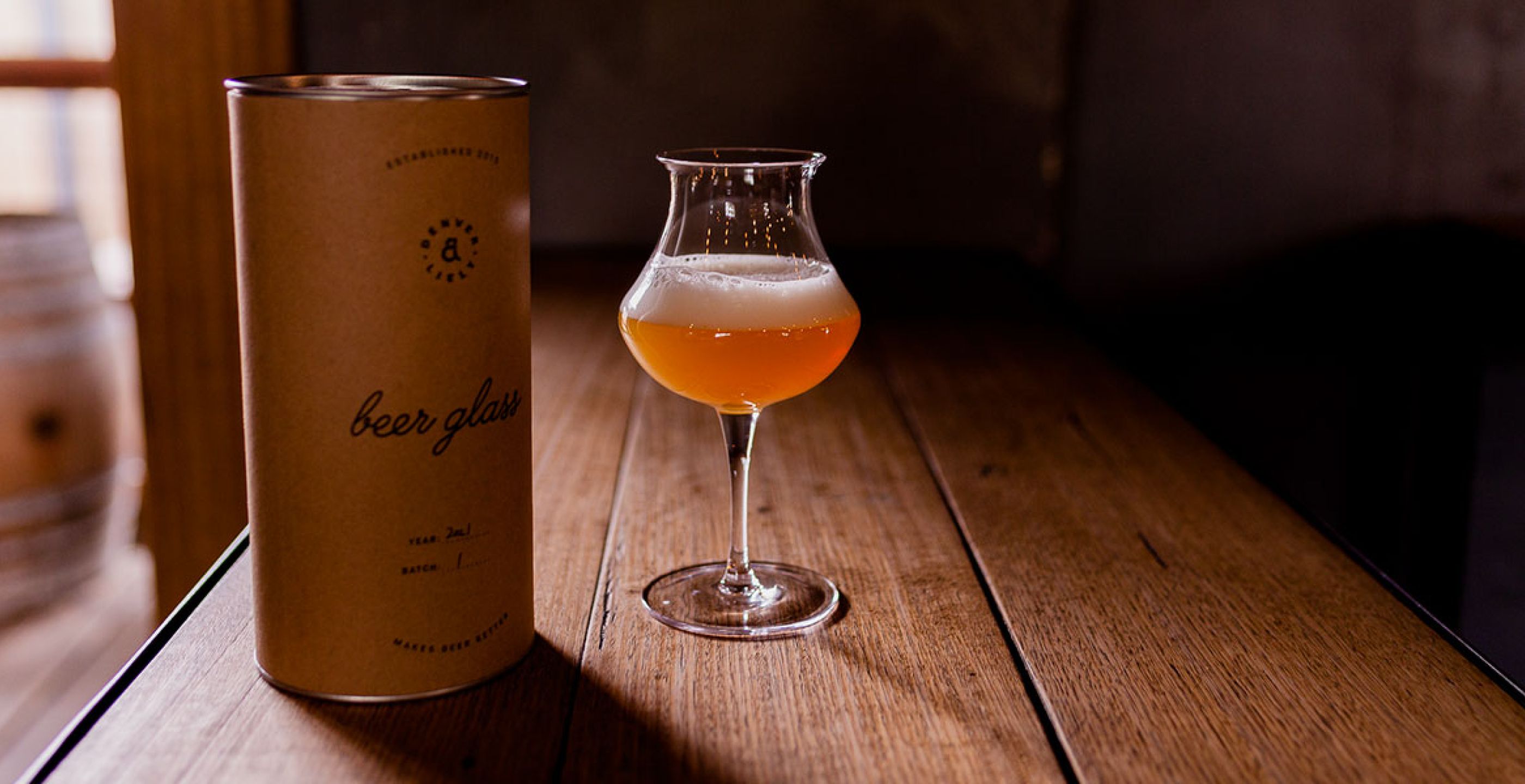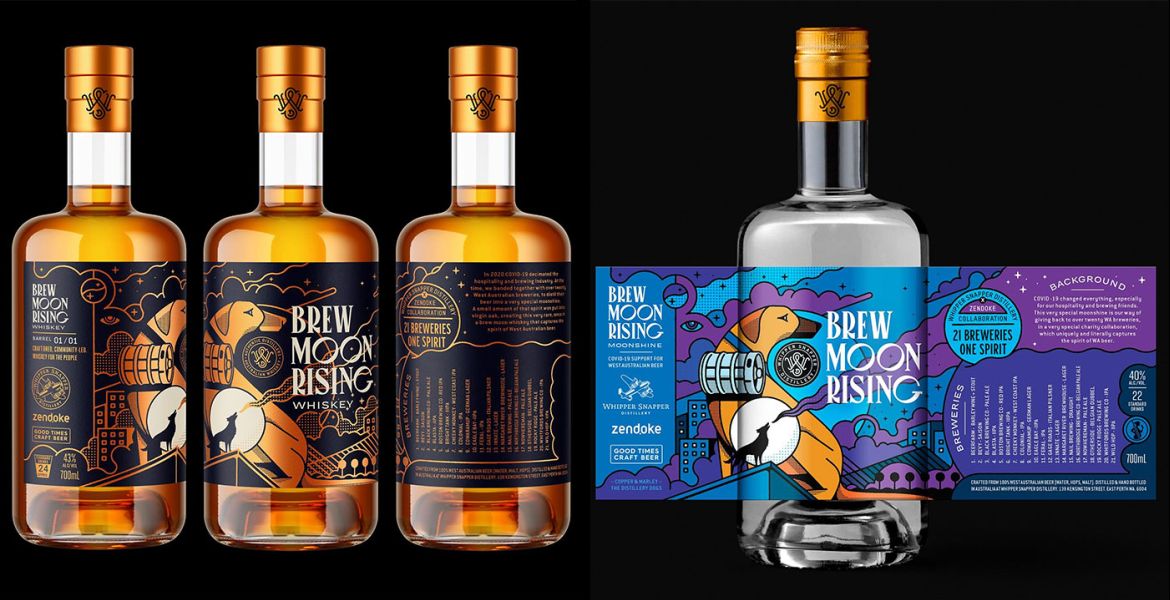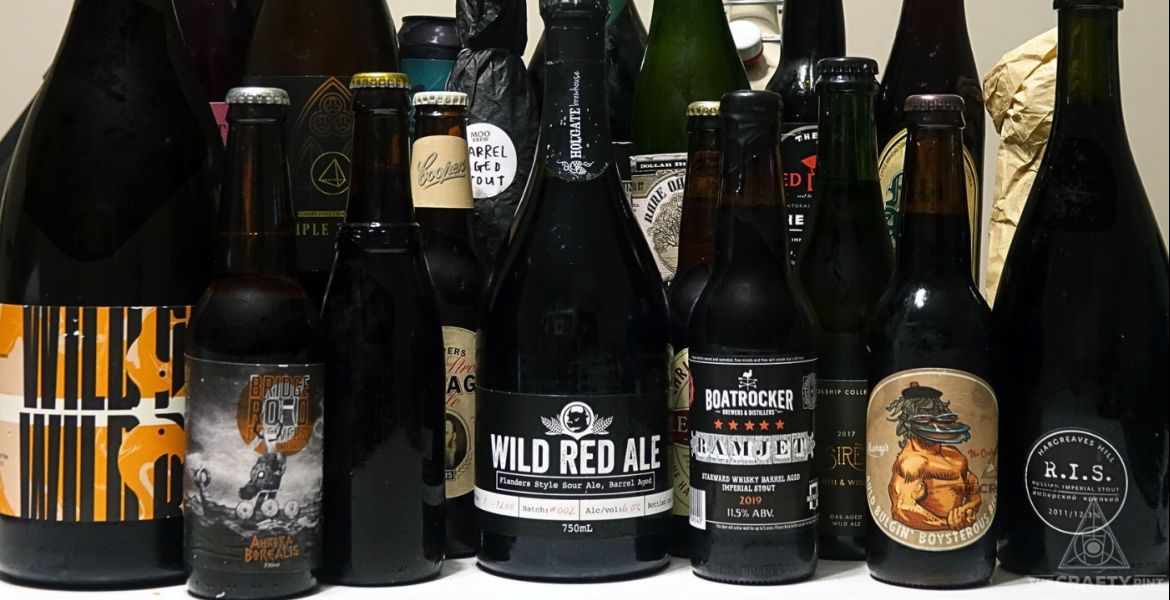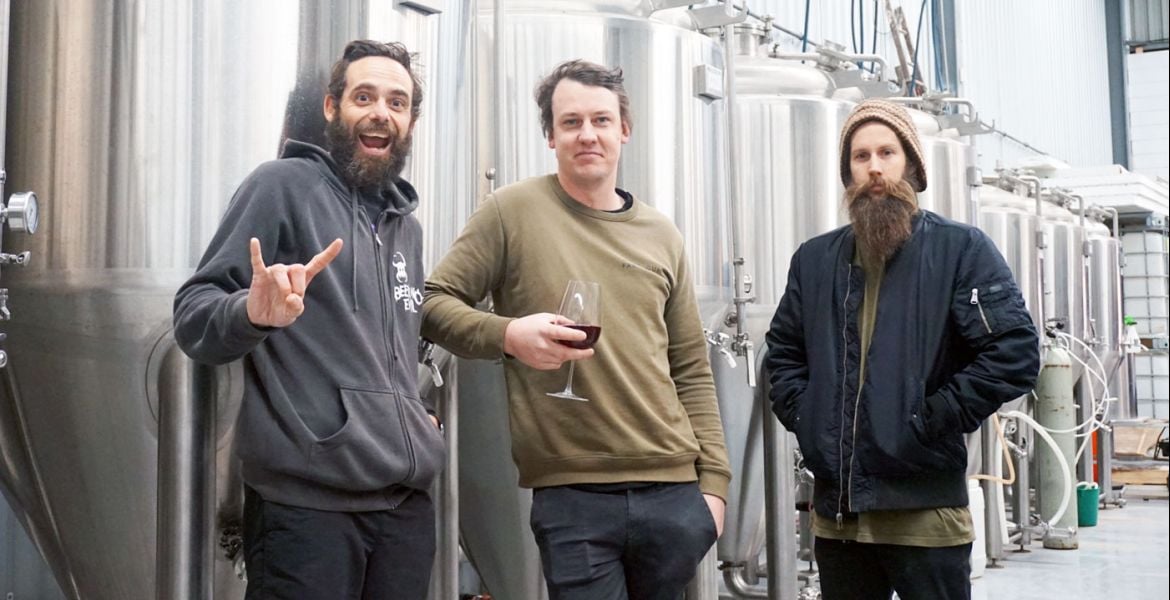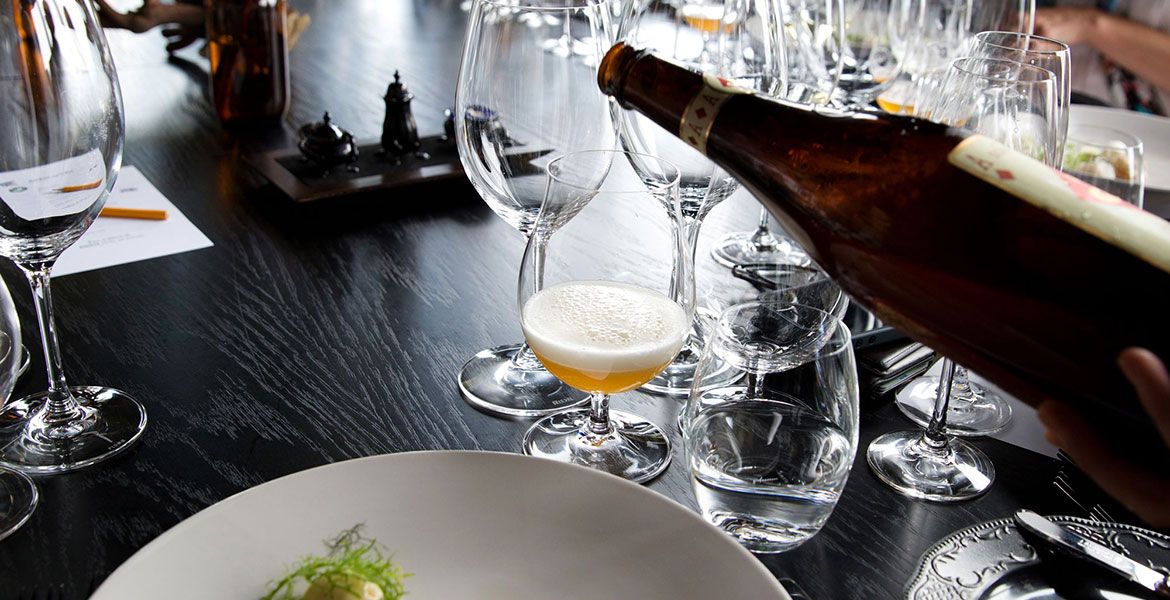“Let's put it on.”
“Put what on?”
“The last suit you'll ever wear.”
So says Zed to Agent J in the first Men In Black film and, like those eponymous suits, a collaboration between two Melbourne outfits sees the arrival of what they hope might be the last glass you ever buy.
Sure, they aren’t exactly guaranteeing your guests won’t smash it, but Carwyn Cellars and the designers at Denver & Liely do hope their speciality beer glass will command a special spot on shelves for craft beer drinkers.
While the former likely needs no introduction to readers of The Crafty Pint, the latter might. Denver & Liely was launched by industrial designers Denver Cramer and Liely Faulkner in 2015 and the pair have brought a range of specialty glasses to the world, including ones designed for whisky, gin and bourbon. Each glass is hand-blown and hand-cut, while they often find their way into the upper echelons of “best of” lists across a range of drink categories.
As for the collaboration at hand, this one has been coming for some time, with Denver saying he’s known the team at Carwyn for years – at least as long as the design company has been around. But having lived overseas more recently, his visits to Thornbury have been a little fleeting during the past few times he's been in Australia.
“Because I was overseas most of the time, I’d just come in for one beer a year or something and then all of a sudden I was here,” he told The Crafty Pint.
Although Denver and Liely met at a bar in Melbourne, their work has taken them around the world: Denver recently lived in Mexico, a country and culture that birthed their agave glass, while Liely has been back in New Zealand since 2019. Like so many living overseas, however, COVID saw Denver suddenly back living in Australia for what he thought might be a short return.
“I was just told by the Australian embassy that you’ve got two flights out of LAX and you should be on one of those, otherwise we’ll put you on a charter,” he says. “So I thought I’d go home for a couple of weeks and head back, but I’m still here two years later.”
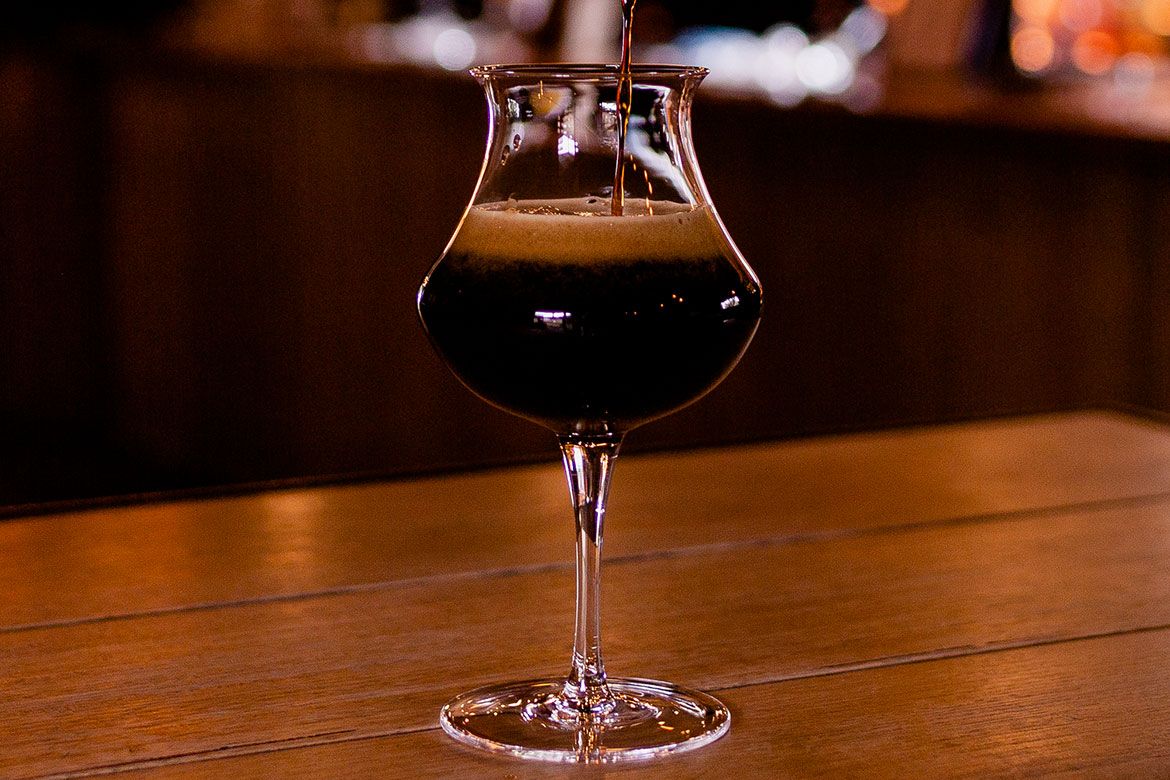
It makes the speciality glass something of a lockdown project, one Denver says they’ve spent close to 18 months working on.
“It was really good because we got a lot of time with each other because we couldn’t do anything else.”
Carwyn’s bar manager Ben Duval says working on the glass was a long-held desire for the team, one which came from wanting something to match some of the rare and more expensive beers the bottleshop and bar stocks.
“A lot of people come to Carwyn and drink some of the best beers in the world," Ben says, "and there will be sneaky bottle shares that happen or ones we pull out of the cellar.
“These are pretty expensive bottles of beer and we never thought there was really the glassware to match. If you’re spending those kinds of dollars on those beers, why not have the best glass to use?”
The Carwyn team came to the project with plenty of ideas and wanted the speciality beer glass to work for multiple different styles.
“The way it is designed will enhance the aromas, flavours and mouthfeel of any beer,” Ben says. “Obviously how this translates to very different styles of beer varies, but this doesn’t mean that it can’t be a rewarding experience for each.”
Nonetheless, they wanted to focus the glass on three parts of the beer world in particular: barrel-aged stouts, barrel-aged mixed culture beers and IPAs.
For the first of those, Ben believes the glass has helped showcase a range of aromas and make them easier to identify, while the flavours of such beers come across as more complex with a more rounded mouthfeel. For mixed culture ales, they reckon the glass has provided a pronounced brightness and encouraged any fruity or zesty aromas, and carbonation, to stick around for longer. When it comes to hazies, the glass enhanced hop and yeast aromas, while contributing a thicker mouthfeel or creaminess.
“This isn’t something you’re going to smash down in five minutes; we really wanted the glass to hold the carbonation and have a longer-lasting aroma,” Ben says of the beers they had in mind.
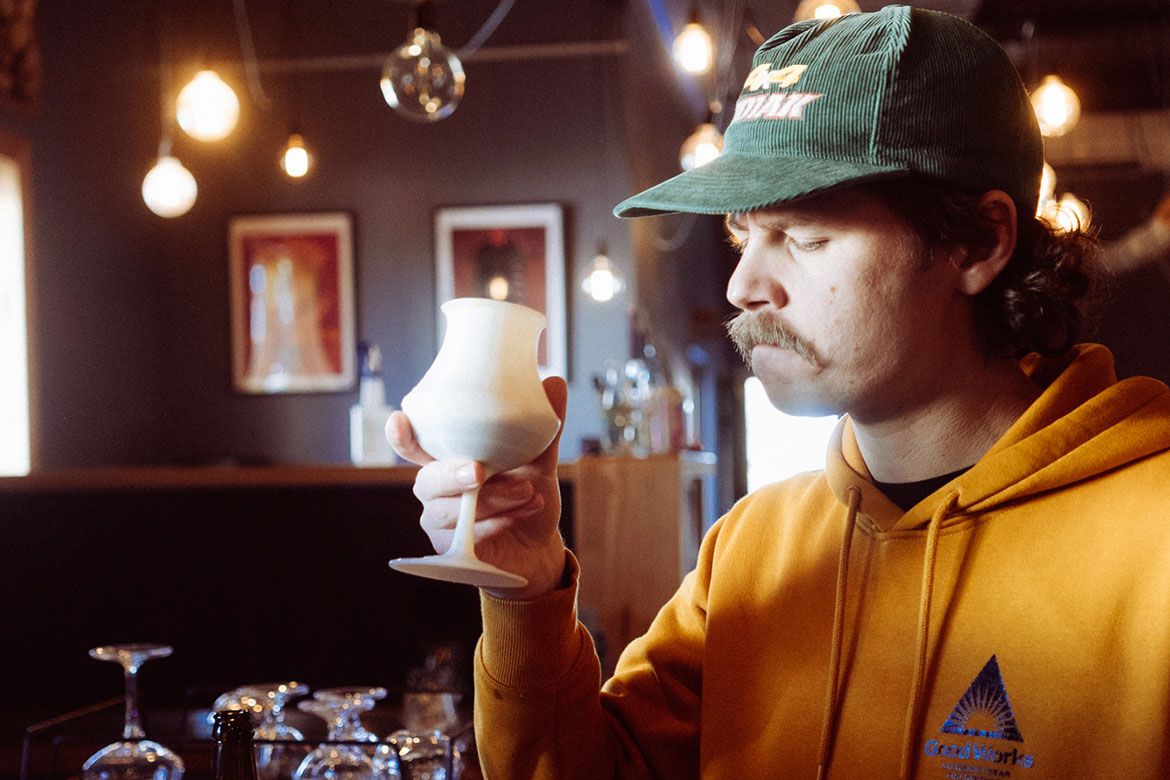
To turn those ideas into physical form, Denver says they spent a lot of time gathering data: they used different glasses to test a variety of beers to see how different elements of each was impacted; the overall process would likely sound familiar to anyone who has judged beer blind.
“Everything’s done in silence while we’re writing the notes, and then you discuss it at the end and you have your score at the end as well,” Denver says. “So we did that for months on months on months and that gave us a lot of data points on, 'What is this glass doing to this beer that makes it enjoyable – is the way this beer is meant to be?'
“So, some glasses might pull out extra sourness or bring in some sweetness, or carbonation might be gone after one second.”
Although various lockdowns slowed the process, Denver says the drinks they were dealing with also meant things moved slowly.
“It was just because beer is so complex and diverse," he says, "so that’s why it took so long.
“There’s so much diversity in beer so it’s really hard to try and be good at the different styles. There are such different flavour profiles, techniques and ingredients and that sort of gear, so just to try and get on top of that, it’s interesting to try and put that into something that can perform.
“There was just a lot of tuning, back and forth, and translating what people feel with it into a physical form that can be made and hand-blown.”
One aspect Denver says never impacted the design process was any preconceptions based on tradition as to how it should look.
“We just do it based on data. As I’ve said to multiple people, we make F1 cars for your mouth. We just make tools.”
The beer glass is Denver & Liely’s first with a stem, although they were never certain that would be the best way to separate your hand and the drink.
“In our 3D prototypes,” he says, “we tested double walls and some really weird inverse stuff of having the beer underneath your hand, but this was the best option, which is why we did it.”
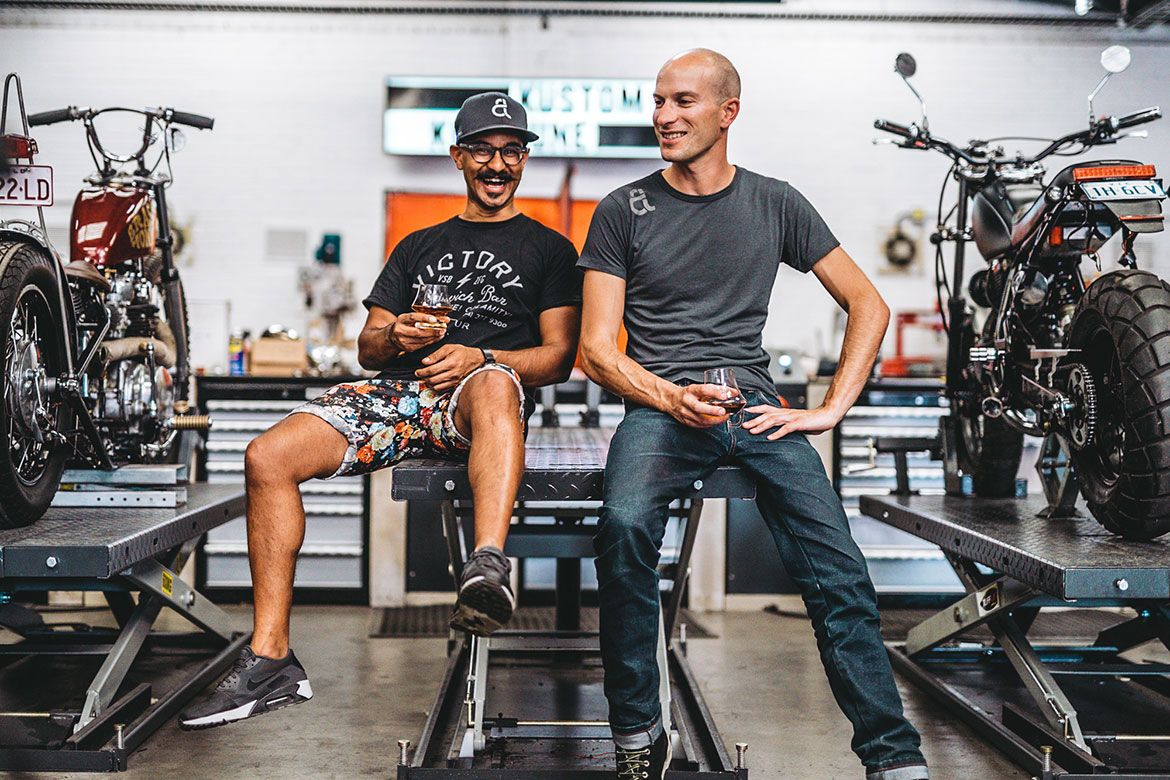
The glass launches at an event on February 19 for which three breweries have created beers designed to showcase what it does – and you may well struggle to think of three Victorian breweries better suited to the task at hand. Deeds Brewing are responsible for a bourbon barrel-aged stout, Dollar Bill have created a barrel-aged sour refermented with boysenberries, raspberries, cherries, and Banks have brewed a double IPA.
The launch will then see Denver and the Carwyn team travel up the east coast to Bitter Phew in Sydney and Brisbane’s Brewski, while Ben saying they hope to make it Stateside for the American launch later in the year too.
“This is a glass we don’t just want to see all over Australia but also all over the world,” Ben says.
With a price tag sitting close to $70 it costs more than some cases of beer, but Denver says their focus is on creating a final product that doesn't compare with others on the market.
“They genuinely work, it’s not all marketing,” he says. “We wouldn’t put out a product that we didn’t think was the world’s best in that category.
“We’re totally independent and we only put things out when we think it’s ready and there’s no time limits or shareholders – it’s just a good product.”
After snaffling a few glasses for their bar, Ben has already been eagerly showing them off to brewers.
“I showed a saison to Chris [Moore] from Sailors Grave on Saturday," Ben says.” And his response was, 'Is that the same beer? Because the ester profile is just crazy compared to the other glass.'
“It’s a different dimension.
“As a performance glass, it’s amazing and I’d challenge anyone to try it blind against other beer glasses and see how it performs. In the trials we’ve done it’s come up very favourably and that’s not to say there isn’t other great glassware out there, we’re just particularly proud of what we’ve achieved with this project.”
Book tickets for the official launch at Carwyn Cellars here.
And you'll find other entries in our Collaborators series here.




